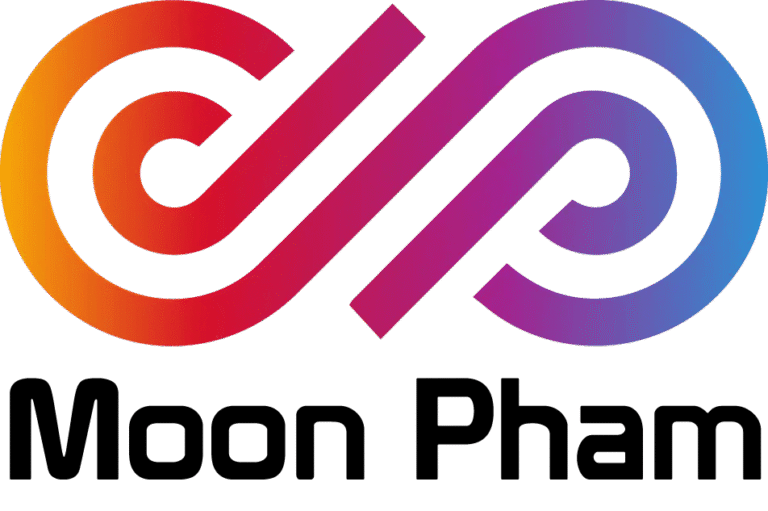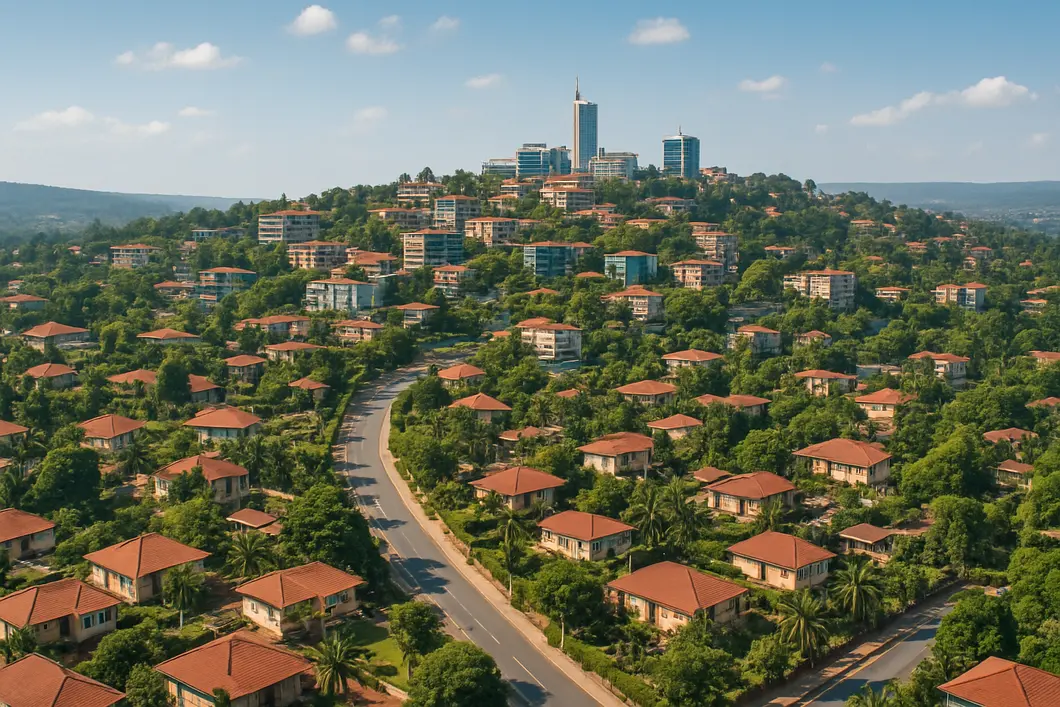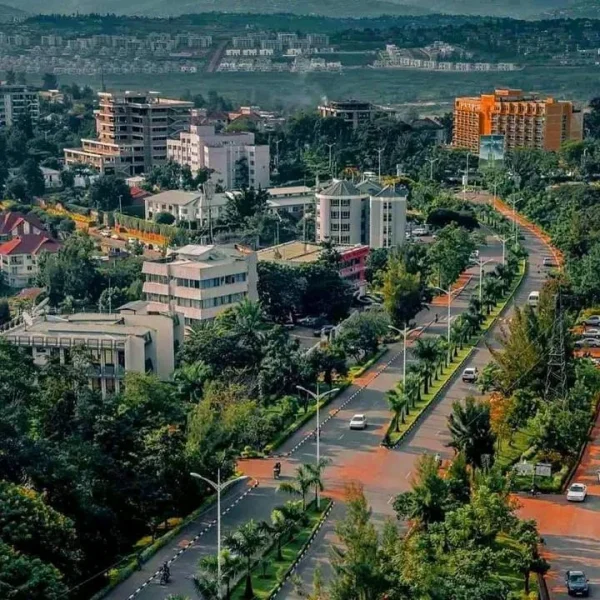Rwanda might not seem like the obvious investment destination at first glance.
It’s landlocked, with no sea access and limited trade routes that make imports and exports more expensive. It’s also tiny — just 14.6 million people compared to Kenya’s 57 million, Tanzania’s 70 million, or Ethiopia’s 135 million. That alone would make many investors turn away. I almost did too.
Yet beneath its quiet surface lies one of Africa’s safest, cleanest, and most efficiently governed countries — and a surprisingly strong real estate opportunity for investors who value structure, transparency, and long-term growth.
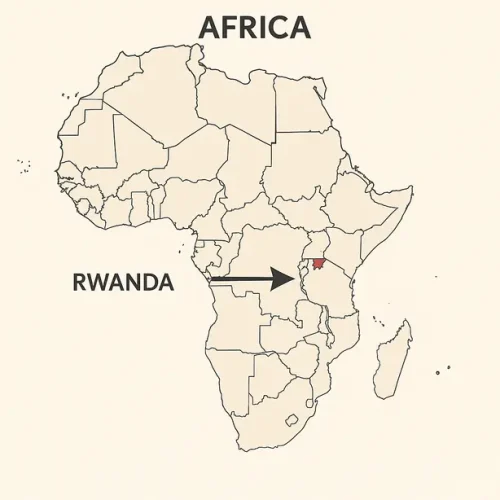
🌍 Rwanda at a Glance
- Population: ~14.6 million (2025)
- Capital: Kigali
- Currency: Rwandan Franc (RWF)
- GDP Growth: 7–8% annually (2023–2025)
- Global Peace Index 2024: 2nd safest country in Africa (after Mauritius)
- Corruption Index: 4th least corrupt in Africa
⏰ Why 2025 Matters
- Rwanda’s real estate market is still early in its growth cycle, but major shifts are coming fast.
- The Bugesera International Airport and Kigali Innovation City are set to boost connectivity, business travel, and housing demand. Urban migration is accelerating, and housing supply is still catching up.
- 2025–2030 may be the prime window for early investors to enter before property prices start reflecting Rwanda’s growing reputation and infrastructure expansion.
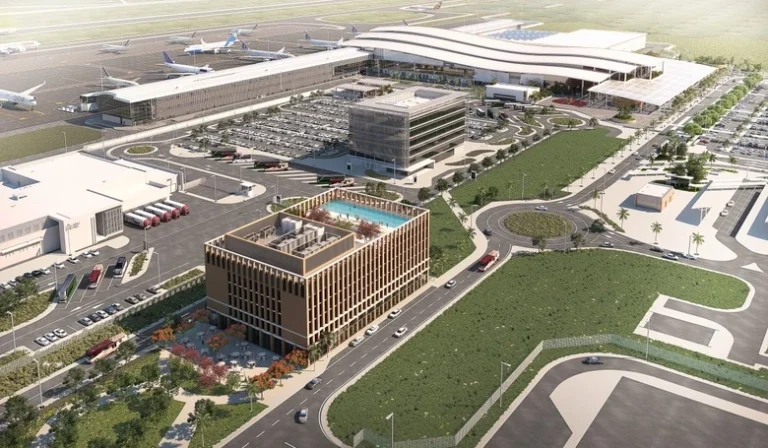
Safety, Transparency & Ease of Doing Business
Rwanda is one of the safest countries in Africa for both locals and foreigners.
Low crime: Violent crime is extremely rare, even in Kigali.
Efficient policing: Strong law enforcement keeps order without being intrusive.
Transparency: 4th least corrupt country in Africa (Transparency International, 2024).
When I registered my own company here, everything was done online and in English — no lawyer, no middleman, no “connections ” needed. It felt like dealing with the Singapore of Africa: clean systems, clear procedures, zero chaos.
Political Stability
Compared to Kenya, Ethiopia, or South Africa, Rwanda’s politics feel calm and predictable.
Strong leadership, low corruption, and efficiency make it ideal for long-term investors who value policy consistency and a stable legal environment.
Global Conferences & Events
Rwanda ranks #2 in Africa (after South Africa) for hosting international conferences and major events (ICCA Ranking, 2024).
The fast-growing MICE industry (Meetings, Incentives, Conferences, Events) attracts high-spending business travelers — fueling demand for hotels, serviced apartments, and short-term rentals in Kigali.
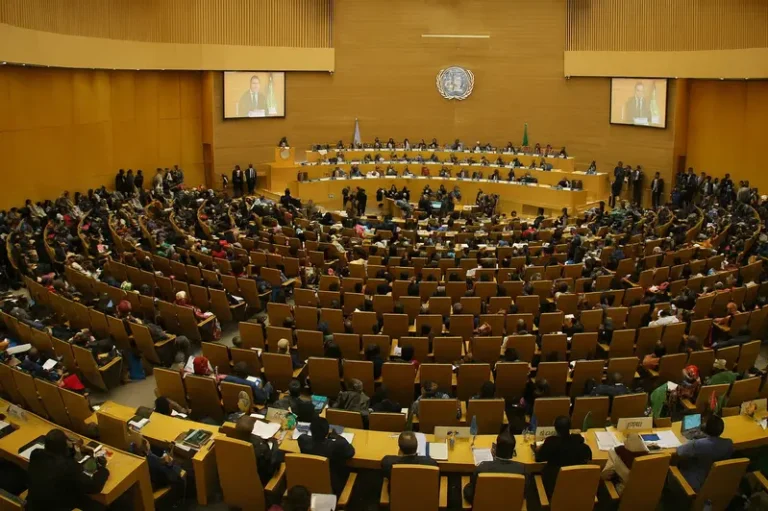
Tourism Growth
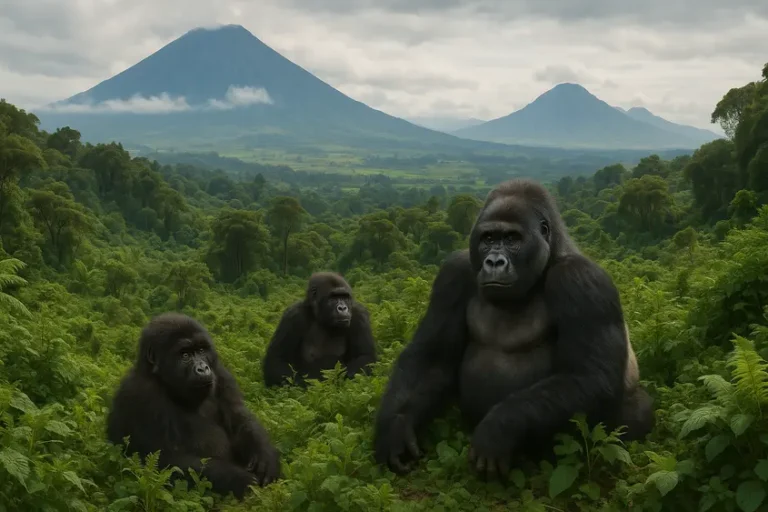
Visitor Growth
Tourism is one of Rwanda’s strongest economic pillars:
2024: 1.36 million visitors
2025 (projected): 1.6–1.8 million
2028 (projected): ~2.2 million
At first glance, these numbers may not seem massive but perspective changes everything.
Rwanda’s population is just over 14 million, which means 1–2 million visitors equal nearly 10% of the entire country’s population.
And because Rwanda remains invisible to 99% of global investors, few are competing for the opportunities forming now.
Top Attractions Driving Tourism
🦍 Volcanoes National Park – world’s #1 mountain gorilla trekking destination
🦓 Akagera National Park – “Big Five” safari experience
🌳 Nyungwe Forest – canopy walks and chimpanzees
🏞️ Lake Kivu – lakeside resorts and water sports
🏙️ Kigali – modern, clean, and ideal for business tourism
A High-End Tourist Market
Rwanda doesn’t cater to mass tourism — it focuses on high-value, low-impact travelers.
A single gorilla trekking permit costs $1,500 per person, and when you add transport, accommodation, and logistics, the average trip ranges from $1,800 to $6,000 per person.
This naturally attracts affluent tourists — the type who prefer premium stays, privacy, and modern comfort.
What This Means for Investors 💰
Consistent demand for high-quality short-term rentals and boutique accommodations
Strong returns from premium nightly rates and long average stays
Limited competition, as few investors have entered this space yet
8%+ rental yields achievable in well-located Kigali or near key tourism corridors
The People
Rwandans are among the kindest, most honest, and humble people I’ve met.
They may seem quiet at first, but their reliability and integrity make business relationships straightforward — a rarity in many frontier markets.
Urban Planning & Vision 2050
Rwanda’s modern urban planning began in 2013 with Kigali’s first master plan, later expanded nationwide under the National Urbanization Policy (2015).
Today, under Vision 2050, Rwanda aims for 70% urbanization by 2050 — focusing on smart, green, and inclusive cities. Kigali now stands as one of Africa’s cleanest and best-planned capitals, supported by a fully digital land registry.
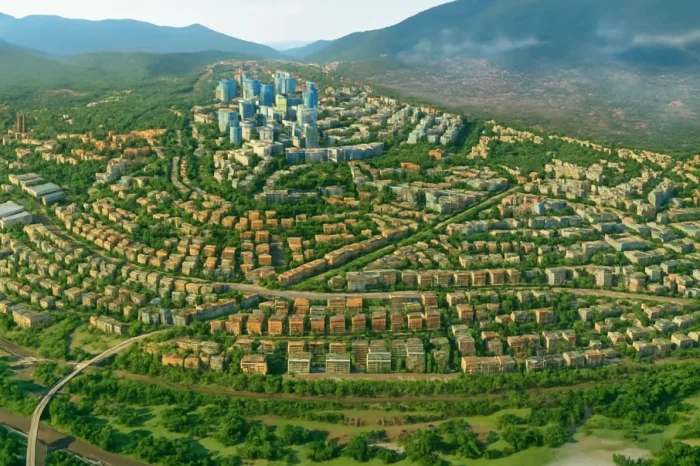
Economy & Growth Drivers
Despite being small and landlocked, Rwanda’s economy grows 7–8% annually, driven by:
🏗️ Construction & Real Estate – urban expansion and modern housing
🌾 Agriculture – coffee, tea, and agro-processing exports
🏦 Services & Finance – over 50% of GDP
🏞️ Tourism & Hospitality – major foreign exchange earner
💡 ICT & Innovation – Kigali Innovation City, fintech, startups
🪨 Mining – tin, tantalum, tungsten, gold
Rental Income & Returns
While the average Rwandan salary is $40–$150 per month, the urban professional class in Kigali earns significantly more, supporting a fast-growing middle-income rental market.
Typical rental yields reach 8% or higher, especially for short-term rentals targeting expats, business travelers, and eco-tourists.
Ownership Rules & Taxes
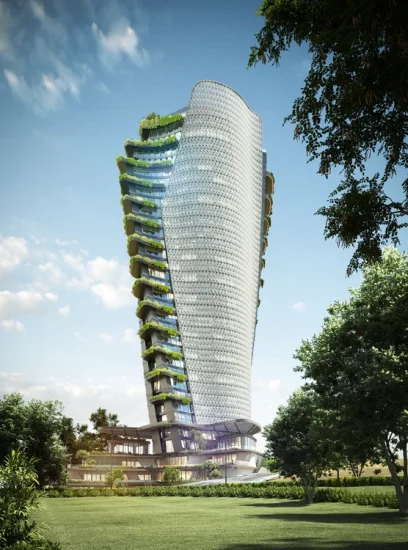
Land Ownership
All land belongs to the state.
Foreigners can lease land for up to 99 years, with full rights to sell, inherit, mortgage, or transfer.
If you own more than one property, you must create a local business entity.
Property Taxes
Property tax: 1% of property value
Land lease fees: Annual, based on location and use
Transfer tax: 4% upon sale
Rental Income Tax
50% standard deduction allowed for expenses.
Tax brackets (on net income):
0% – below RWF 180,000 (≈ $140)
20% – from RWF 180,001 to 1,000,000 (≈ $140 – $770)
30% – above RWF 1,000,000 (≈ $770)
Let’s say your property in Kigali earns RWF 10,000,000 in annual rental income (≈ $7,700 USD).
Step 1: Apply the 50% expense deduction
RWF 10,000,000 × 50% = RWF 5,000,000 taxable income (≈ $3,850 USD).
Step 2: Apply tax brackets on the net income
| Tax Bracket | Range (RWF) | Range (USD) | Tax |
|---|---|---|---|
| 0% | 0 – 180,000 | $0 – $140 | RWF 0 |
| 20% | 180,001 – 1,000,000 | $140 – $770 | RWF 164,000 |
| 30% | Above 1,000,000 | Above $770 | RWF 1,200,000 |
Total tax payable:
RWF 1,364,000 (≈ $1,050 USD)
✅ Effective tax rate: about 13.6% on your net income
✅ After-tax profit: RWF 3,636,000 (≈ $2,800 USD)
Capital Gains & Repatriation
Capital Gains Tax: 5% on net profit when selling property.
Repatriation: Foreign investors can freely transfer profits, rental income, and sale proceeds abroad through licensed banks. Rwanda imposes no foreign currency restrictions.

Financing Options
Foreigners can obtain local mortgages through Rwandan banks by registering a company or partnership.
However, most investors prefer USD cash purchases, which remain the most straightforward route.
This structure is extremely investor-friendly, especially compared with neighboring countries.
Foreign Investment Climate
Rwanda ranks among Africa’s top three for ease of doing business.
The Rwanda Development Board (RDB) serves as a one-stop center for business registration, land leasing, and investment facilitation.
Foreign investors receive equal protection under the law and can own companies outright without local partners.
Who Should Invest in Rwanda
🟢 Investors who value safety, structure, and long-term growth. Everything from buying to registering property is transparent and digital, making Rwanda one of the easiest places to invest in Africa.
🟢 Those who prefer secure, well-regulated markets with low corruption and steady returns. Rwanda offers a sense of order, clarity, and peace that’s rare in emerging markets.
🟢 People planning to retire or own a second home in Africa. Kigali offers a calm, clean, and organized lifestyle that feels peaceful yet modern.
🟢 First-time or cautious investors who want to diversify abroad without high risk. Rwanda’s predictable systems make it a safe entry point into global investing.
🟢 In short, Rwanda is for patient, ethical investors who value stability and purpose — people who want their money to grow quietly while contributing to a country that’s genuinely moving forward.
Interested in Investing in Real Estate in Rwanda?
If you’re seriously considering investing in Rwanda, feel free to send me a message.
I’m happy to share a few trusted local contacts to help you get started safely and confidently.
Related posts:
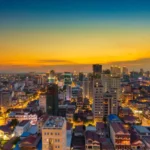 How to Invest in Cambodian Real Estate as a Foreigner: My Personal Experience as a European Investor
How to Invest in Cambodian Real Estate as a Foreigner: My Personal Experience as a European Investor
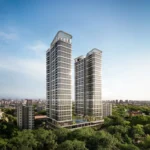 Nairobi Real Estate Investment 2025: How I Bought 2 High-ROI Apartments for Under $150K
Nairobi Real Estate Investment 2025: How I Bought 2 High-ROI Apartments for Under $150K
 How to Invest in Real Estate with Just $20K (2025) – Best Strategies & Smart Locations
How to Invest in Real Estate with Just $20K (2025) – Best Strategies & Smart Locations
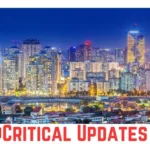 Vietnam Real Estate Investment 2025: Critical Risks, New Regulations & Insider Tips for Foreign Investors
Vietnam Real Estate Investment 2025: Critical Risks, New Regulations & Insider Tips for Foreign Investors
 6 Emerging Cities with Real Capital Growth Potential – For Under $150K (That Aren’t Trending on Youtube)
6 Emerging Cities with Real Capital Growth Potential – For Under $150K (That Aren’t Trending on Youtube)
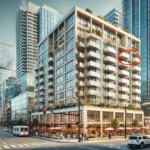 We Almost Bought TWO Off-Plan Apartments in Dubai—Here’s Why We Walked Away
We Almost Bought TWO Off-Plan Apartments in Dubai—Here’s Why We Walked Away
